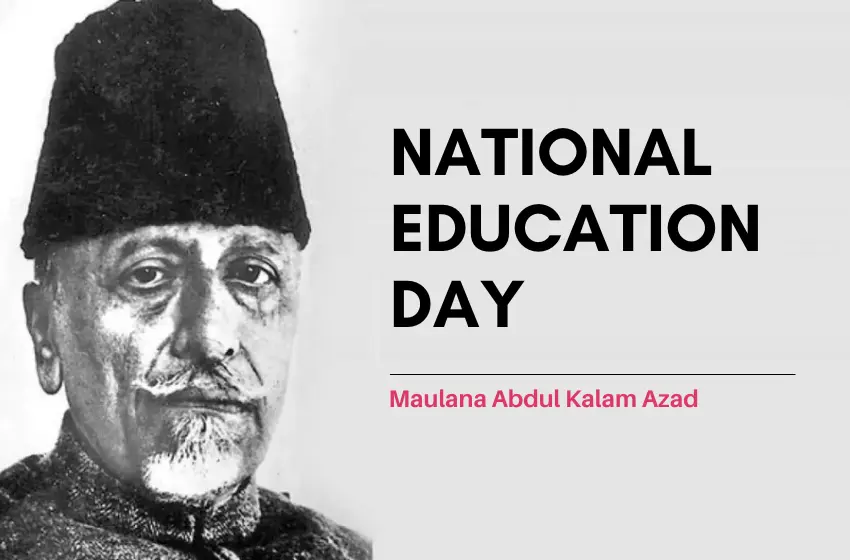National Education Day: Honoring Maulana Abul Kalam Azad

Introduction
National Education Day, observed on November 11th, is a day dedicated to honoring the birth anniversary of Maulana Abul Kalam Azad, a visionary leader, freedom fighter, and the first Education Minister of independent India. This day is not just a celebration of a great personality but also a reminder of the importance of education in shaping the future of a nation.
Maulana Abul Kalam Azad: The Visionary Educationist
Maulana Abul Kalam Azad, born on November 11, 1888, was a prominent leader in the Indian freedom struggle and a staunch advocate for education. He believed that education was the key to achieving social and economic progress, and he worked tirelessly to promote it in the newly independent India.
- Universal Education
Maulana Azad’s vision of universal education was centered on making quality education accessible to every Indian, regardless of their socio-economic background. He emphasized the importance of education as a means of empowering the masses and breaking the cycle of poverty and ignorance.
- Promoting Scientific Temper
He believed that scientific and rational thinking was essential for the development of a modern nation. Maulana Azad encouraged the scientific temper and the spirit of inquiry among students, as he believed that these attributes would lead to technological advancements and overall progress.
- Cultural and Linguistic Diversity
Maulana Azad recognized India’s rich cultural and linguistic diversity and emphasized the need to preserve and promote it through education. He played a significant role in the development of the Sahitya Akademi, an organization dedicated to the promotion of Indian literature and languages.
The Significance of National Education Day
National Education Day serves as a reminder of the values and principles championed by Maulana Abul Kalam Azad. It symbolizes the commitment of the Indian government to provide quality education to all and to promote the ideals of inclusivity and diversity. Here are some key aspects of the significance of this day:
- Promoting Literacy and Education
National Education Day encourages educational institutions and individuals to engage in activities that promote literacy, education, and awareness. Schools and colleges often organize special events, seminars, and lectures to highlight the importance of education.
- Remembering the Visionary Leader
This day allows the nation to remember and pay tribute to Maulana Azad’s significant contributions to the field of education. His legacy as an educationist, freedom fighter, and leader continues to inspire generations.
- Fostering a Learning Culture
National Education Day fosters a culture of learning and continuous improvement. It reminds us that education is not just a means to an end but a lifelong journey of enlightenment, growth, and development.
- Inclusivity and Access
By honoring Maulana Azad’s vision of universal education, this day reiterates the importance of making quality education accessible to all, including marginalized and underprivileged communities.
Conclusion
National Education Day is not just a day to commemorate the birth anniversary of Maulana Abul Kalam Azad; it is a celebration of his enduring legacy and the values he held dear. It is a reminder that education is the cornerstone of a nation’s progress and development. As we observe this day, we must reaffirm our commitment to promoting education for all and working towards the realization of Maulana Azad’s dream of an educated, enlightened, and inclusive India.


